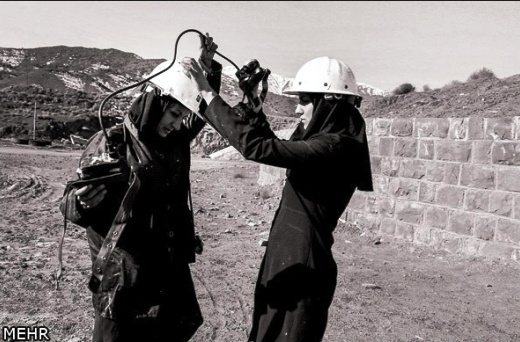In recent years girls have taken about 70 percent of university seats across the nation. Efforts by a growing number of female graduates to land a proper job have affected, in one way or another, the labor market in so many ways. Morteza Talaie, the deputy chairman of Tehran City Council, has explained in an article published in a July 28th issue of the Hamshahri Newspaper the challenges and harms associated with female employment and its impact, both positive and negative, on the institution of family.
Post-revolution Iran witnessed social developments take on a form different from what they were like in the years before the 1979 Islamic revolution. The revolution prompted government efforts to render more public services and brought a handful of changes to social and cultural views in society. The changes in question found their way to the individual and social lives of members of the public and contributed to the emergence of new lifestyles. Such developments introduced far more fundamental changes – than in the past – to the lives of women in society.
[…]
Today Iranian women face no social and legal restrictions and can take part in social activities shoulder to shoulder with men, provided that they appear in Islamic covering and maintain their chastity and modesty. The women do so without being dragged into the modernist mindset that prevailed during the first and second Pahlavi regimes and the mentality of the feminist intellectuals of the 21st century, and without viewing their veil and chastity as an impediment to their progress and growth [in society].
A look at the Koran (verse 32 of An-Nisa Chapter which says women can lay claim to what they have earned or Al-Qasas Chapter in which God points to the occupation of the daughters of Prophet Shuaib (Peace be upon him)) as well as the narratives by the infallible members of the Muslim Prophet’s household and the views of great Shiite scholars reveals that women are allowed, according to the principles of Sharia, to get involved in social events alongside men and take part in economic, social, cultural and scientific activities providing that they don’t push to the sidelines their main responsibility which is training children and trying to march toward human perfection and growth. They are expected to do their utmost to bring up their children, not let go of their marital duties and not hand over their motherly role to the media, daycare centers and schools under the pretext of undertaking their occupational responsibilities.

Unfortunately, social changes show that women’s employment involves a lot of shortcomings. [….] Attempts by public and economic agencies to overlook women’s social and human responsibilities and the destructive role the feminist cast of mind plays in trampling on their innate rights seem to lie at the center of measures meant to exploit women in the 21st century.
Women, who are tasked with tough jobs in a male-dominated administrative workplace, bear the brunt of such social losses which are caused by efforts to prompt the intermingling of sexes in public places. This would also be a serious challenge to development of women’s social lives. It comes as some civil society activists, through the line of thinking they pursue, push – unknowingly though – the females to the brink of degeneration, regardless of the losses women might sustain due to equal social responsibilities such as employment with men. [….]
Turning a blind eye to such pressing issues and inattention to their dire consequences constitute not only an unethical and inhuman act but also an unforgivable sin. A careful scan of the growing number of social ills discloses that they have their roots mostly in unprincipled and unprofessional intermingling of women and men in society. I don’t want to defend or endorse gender segregation plans in society; such plans are basically out of the question. I am talking about unprincipled and unnecessary intermingling of men and women which is harmful. Besides, the cession to women of the affairs which cause them to put in much time, energy and costs spells yet another injustice. The transfer of roles that are beyond their means would cause irreparable damage to women, both physically and psychologically.
With regard to this, Imam Ali (Peace be upon him) says in a letter to his elder son, Imam Hassan (Peace be upon him), “Do not cede jobs to women which are beyond what they can afford. This is better for them and is more appropriate for their lives, because women are tender creatures, not heroic beings.” Imam Ali’s word for women is delicately and beautifully pointing to the temperamental and physical differences between men and women and the latter’s vulnerability. In my opinion the decisions made by the city management on such issues are justifiable both from rational and religious points of view. In addition to the reasons provided for the issue [segregation of city employees by gender], the feedback received so far is indicative of contentment on the part of female employees in the city management system
I very much hope that other institutions take heed of women’s physical and mental conditions in their march toward materialization of women’s rights in society, at least in the employment sector. Civil society activists too are expected to pay due attention to society’s economic, cultural and religious realities, and try to push for equal rights of women and men according to the duties of each so that women are not entangled in social ills under the cover of valuable causes and ideals.
